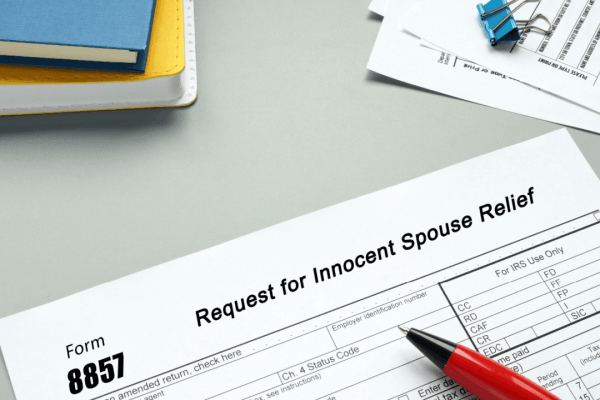
Tax Debt Uncollectible Status: What It Means and How It Works
When Is Tax Debt Uncollectible According to the IRS?
Tax debt uncollectible status can offer temporary relief when you simply cannot afford to pay what you owe. The IRS may determine that trying to collect from you would create a financial hardship. In this case, your tax debt is labeled as “Currently Not Collectible” (CNC), pausing all collection efforts.
This status doesn’t erase your debt, but it can give you time to recover financially without fear of garnishments or levies.
What Is Currently Not Collectible (CNC) Status?
The term tax debt uncollectible refers to a situation where the IRS agrees that you’re not in a position to make payments toward your tax debt.
Definition of Tax Debt Uncollectible
The IRS places your account into CNC status after reviewing your income, expenses, and assets. If they determine you cannot make even partial payments without sacrificing basic living needs, they’ll pause collections.
For more on IRS hardship options like CNC, visit our IRS wage garnishment relief page.
How CNC Differs from Forgiveness
CNC is not the same as debt forgiveness. Your debt still exists and continues to accrue penalties and interest. The IRS just agrees to hold off on collection actions until your financial situation improves.
Who Qualifies for Tax Debt Uncollectible Status?
Not everyone is eligible for CNC status. You must prove that paying your tax debt would leave you unable to afford essential expenses.
IRS Financial Review
The IRS will require detailed documentation of your financial situation, including:
- Income (pay stubs, benefits, etc.)
- Monthly living expenses
- Asset values
- Debts and liabilities
They use these to determine if collection would create an undue burden.
Common Scenarios That Qualify
Some typical cases where CNC status might be granted include:
- You are unemployed or on a fixed income
- You have a serious medical condition that limits earning ability
- Your income is below the IRS’s allowable living expenses
How to Request CNC Status from the IRS
If you believe your tax debt is uncollectible, you’ll need to formally apply for CNC status.
Forms and Process
You may be asked to submit:
- Form 433-A (Collection Information Statement for wage earners or self-employed)
- Form 433-F (for other individuals)
These forms provide the IRS with a complete view of your financial situation. Learn more about applying through our legal help page or by using the IRS Form 433-F instructions.
What to Expect During Review
The IRS may take several weeks to process your request. They might contact you for additional documents or clarification before making a final decision.
What Happens While in CNC Status?
CNC status pauses collection, but your tax debt remains active.
IRS Pauses Collection
While your tax debt is uncollectible:
- Wage garnishments and bank levies are halted
- You won’t be required to make payments
- However, the IRS may still file a federal tax lien
Annual Review of Status
The IRS doesn’t forget about your debt. They may review your finances annually to determine if your situation has improved. If it has, they can remove the CNC status and resume collection.
Pros and Cons of CNC Status
Being classified as tax debt uncollectible can provide breathing room—but it’s not a permanent solution.
Benefits
- Immediate stop to collection efforts
- Time to improve your finances
- Protection from garnishments or levies
Downsides
- Debt continues to grow due to interest and penalties
- IRS may still file liens against your property
- CNC status can be removed if your income rises
Final Thoughts on IRS Tax Debt Uncollectible Status
Getting your tax debt uncollectible status recognized by the IRS can give you temporary protection while you recover financially. However, it is only a pause in collection, not forgiveness.
To maintain CNC status, you’ll need to remain in financial hardship and respond to any future reviews. Working with a tax professional can help you navigate the application and keep you protected.
Get Help Determining If Your Tax Debt Is Uncollectible
Wondering if your tax debt is uncollectible? A tax relief expert can help you gather documentation, submit forms, and communicate with the IRS on your behalf. Take the first step toward financial peace of mind—contact us today.
Frequently Asked Questions
1. What does "tax debt uncollectible" mean?
It means the IRS agrees that you cannot currently afford to pay your tax debt due to financial hardship.
2. Can the IRS collect again later?
Yes. If your income increases, the IRS may review your case and resume collections.
3. Does interest continue to build during CNC status?
Yes. Your balance continues to grow even though payments are not being collected.
4. How long does CNC status last?
As long as you remain in hardship, but the IRS reviews your status yearly.
5. Will CNC status stop IRS tax liens?
No. The IRS can still file a lien even while collection actions are paused.
Key Takeaways
- Tax debt uncollectible means the IRS halts collections due to financial hardship
- CNC status doesn’t erase the debt—it delays payment requirements
- You must apply and provide detailed financial proof
- Interest and penalties continue to accrue while in CNC
- The IRS may resume collection if your financial status improves
Free Tax Case Review
If you are struggling with tax debt or have received a letter from the IRS complete the form below.Advertising. This site is a marketing service and does not provide legal or tax advice. Submitting information does not create an attorney-client, tax professional-client, or any other advisory relationship. Results are not guaranteed. A list of participating attorneys, tax firms, and tax providers is available here.
IRS Audit
You received an audit notice from the IRS
Tax Debt Relief
You owe the IRS money and are looking for relief options
Wage Garnishment
The IRS is taking part of your wages to pay off your debt
Tax Lien
The IRS put a legal claim on your property
IRS Property Seizure
The IRS is going to take your property to pay down or pay off your tax debt
Penalty Abatement
You want to request to remove or reduce penalties assessed by IRS
Innocent Spouse Relief
Relief from joint tax debt caused by your spouse or former spouse
Tax Debt FAQ
Common facts, questions and answers about tax debt and tax debt reilef
Tax Debt Lawyer
A tax debt lawyer can help you with your tax debt problems
Recent Posts
- Who Is Eligible for Innocent Spouse Relief and How Does It Work?
- What is an Effective Tax Strategy for Married Couples
- What are the Proofs of Innocent Spouse Relief?
- What Form Do You Use for an Innocent Spouse? | Complete IRS Filing Guide
- What Are the Four Types of Innocent Spouse Relief? | Your Complete Guide



